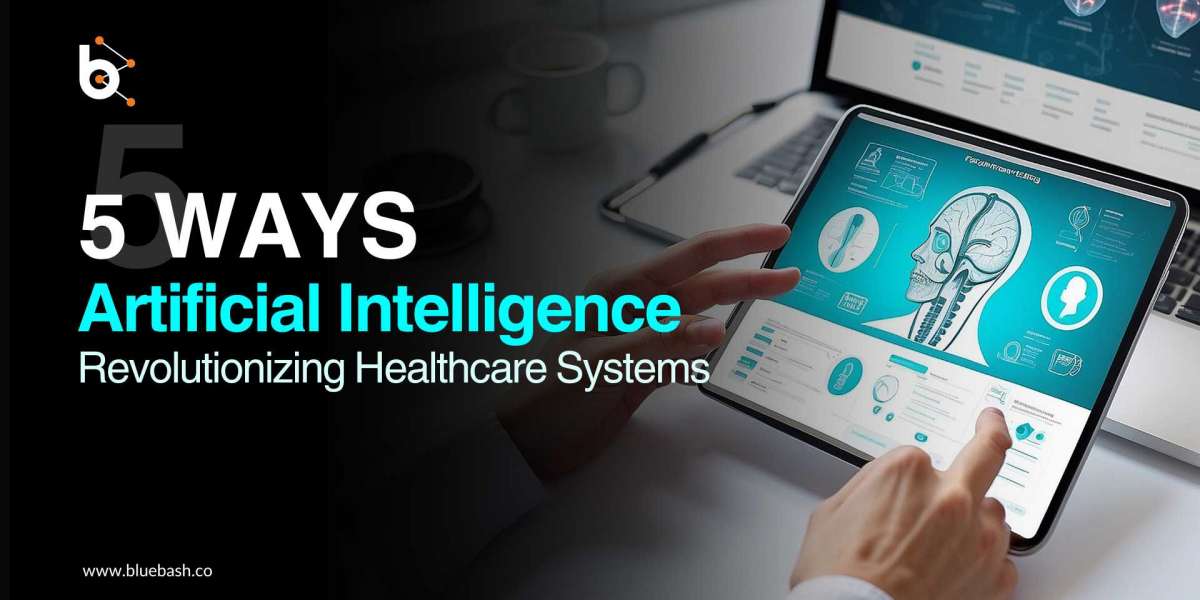Artificial intelligence (AI) is playing a pivotal role in meeting these challenges. AI services in healthcare are enhancing the speed, accuracy, and efficiency of health systems worldwide. By leveraging the ability to analyze vast amounts of data in real time, AI is transforming clinical decision-making, reducing administrative burdens, and improving overall patient care.
Here are five ways AI healthcare solutions are driving digital transformation across the healthcare industry:
1. Enhancing Diagnostic Accuracy
The pandemic has stretched healthcare professionals thin, making it crucial to reduce the burden on clinicians. AI can significantly improve the accuracy of diagnostic information, allowing healthcare providers to prioritize patient care better. For instance, AI algorithms used in cardiac monitoring devices have demonstrated remarkable success in differentiating between false and true alerts, enabling clinicians to focus on critical cases.
By improving diagnostic precision, AI healthcare solutions empower healthcare providers to deliver timely and accurate care, which ultimately enhances patient outcomes.
2. Enabling Early Intervention with Diagnostic Imaging
One of the most promising applications of AI services in healthcare is its integration into diagnostic imaging. AI-powered systems can analyze medical images, such as those from MRIs and CT scans, and quickly identify abnormalities that may otherwise be missed by the human eye. For example, AI-driven tools are being used to detect precancerous polyps during colonoscopies, significantly reducing the risk of colorectal cancer.
These advancements not only promote early intervention but also enable healthcare providers to make more informed decisions, improving the overall quality of care.
3. Supporting Continuous Training and Education
In a fast-evolving healthcare landscape, continuous learning is crucial for healthcare providers. AI-powered solutions are transforming how surgical procedures are recorded, analyzed, and utilized for education. By capturing and storing surgical videos, AI facilitates detailed analysis of surgeries, helping surgeons refine their techniques and improve outcomes.
This use of AI healthcare solutions enhances medical training, enabling healthcare professionals to stay up to date with the latest advancements and deliver better care to their patients.
4. Prioritizing Patient Care and Efficiency
Global healthcare systems are often overwhelmed by the growing demand for care, making it essential to prioritize patients effectively. AI software platforms assist in streamlining decision-making by analyzing patient data in real-time and identifying which patients require immediate attention.
By utilizing AI services in healthcare, professionals can ensure that the most critically ill patients receive the care they need promptly, improving the efficiency of healthcare delivery.
5. Promoting Equity in Healthcare
AI can also help address long-standing disparities in healthcare by analyzing diverse data sets and reducing biases in decision-making. AI-driven algorithms can ensure that underserved populations receive timely and accurate diagnoses and treatments. For example, some AI healthcare solutions are designed to assist in the early detection of diseases in communities that lack access to advanced medical technologies.
Enhancing Triage and Resource Allocation
AI software platforms are revolutionizing how healthcare systems manage patient triage and resource allocation. By analyzing vast amounts of patient data in real-time, AI can prioritize patients based on the severity of their conditions, ensuring that those in critical need receive immediate attention. This real-time analysis helps healthcare professionals make informed decisions quickly, which is crucial during peak times or emergencies.
Reducing delays and Improving Workflow
Efficient patient care also depends on smooth operational workflows. AI tools streamline administrative processes such as appointment scheduling, patient intake, and follow-up care management. By automating these tasks, AI reduces administrative bottlenecks and frees up healthcare staff to focus more on direct patient care. This leads to a more organized and efficient healthcare environment, ultimately enhancing patient satisfaction and outcomes.
Optimizing Treatment Pathways
AI’s ability to analyze historical and real-time data allows for the development of optimized treatment pathways. By evaluating patterns and predicting patient needs, AI can suggest the most effective treatment options and interventions. This predictive capability ensures that resources are allocated efficiently which reduces wait times and improving the overall quality of care.
So AI services in healthcare are instrumental in prioritizing patient care and operational efficiency. By enhancing triage processes, reducing administrative burdens, and optimizing treatment pathways, AI ensures that healthcare systems can meet the increasing demands while delivering high-quality care to patients.
Conclusion:
AI is not just a technological advancement; it is a game-changer in how healthcare is delivered globally. By improving diagnostic accuracy, enabling early intervention, and promoting equity, AI services in healthcare are revolutionizing the industry. The integration of AI healthcare solutions is empowering healthcare systems to deliver better outcomes while addressing the challenges of efficiency and patient care. As AI continues to evolve, it will remain at the forefront of healthcare transformation.




